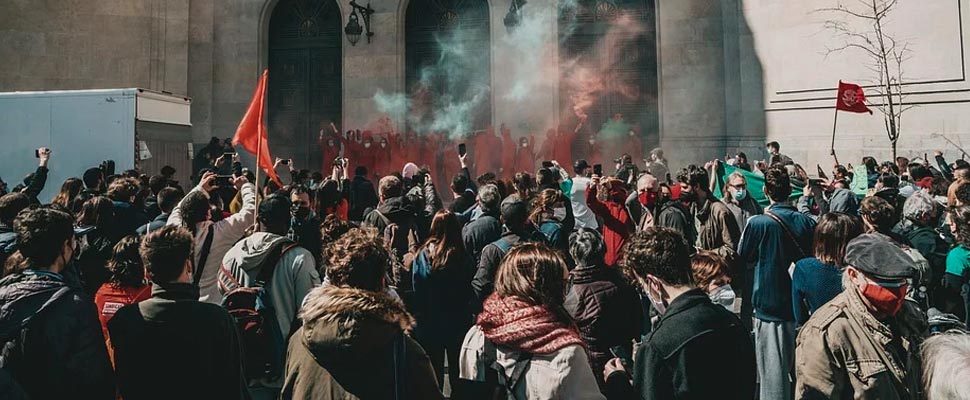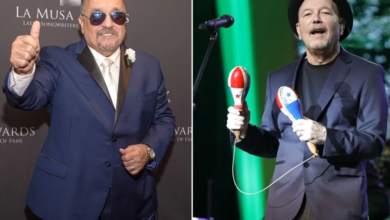Voices of Resistance: How Latin American Music Chronicles Struggle and Hope
Latin America’s tumultuous history, shaped by conquests, upheavals, and crises, has found a fervent narrator in protest music, forging songs that echo collective struggles, unite voices, and spark hope, from the 1970s’ bold anthems to today’s stirring calls for justice.

Social commitment, denunciation or resistance have also inspired numerous songs that today can be considered as hymns. Photo: Pixabay
When Songs Mirror Collective Longings
Music in Latin America has never been just background noise. People have used it to share sorrows, confront injustices, and imagine new realities. Often, rural guitar strums or Andean wind instruments carried messages no newspaper would print. Ordinary folks heard themselves in these tunes: peasants rallying against landlords, students defiantly chanting outside national palaces, or mothers weeping for missing loved ones. Throughout the 20th century, a wave of strongmen and coups tightened censorship, but melodies kept traveling, sometimes in whispered living-room gatherings or at hidden clubs. Even exiled artists found ways to reach those back home, reminding everyone that no government decree could silence hope entirely.
Roots Planted in Defiance
Across the region, local folklore mixed with African drums and Indigenous chants spawn countless protest songs. Look at corridos in Mexico: they boomed with revolutionary zeal during the early 1900s, singing about Pancho Villa and Emiliano Zapata. Each verse pinned real stories on mythical heroes. Meanwhile, in the Andes, Quechua ballads gave voice to people whose communities had been long ignored. Musicians addressed common problems. Farmers had land taken; pay was low, and secret police caused worry. Some lyrics sounded light, but the real point often protested oppression. The tunes connected people of different social groups. They created an agreement. The music suggested even poor people could act.
A 1970s Crescendo
The 1970s erupted with unforgettable anthems. Chile’s Quilapayún soared with El pueblo unido jamás será vencido, calling everyday citizens to unite against tyranny. In those days, President Salvador Allende’s socialist vision stoked either massive hope or fierce backlash, and protest songs mirrored that tension. After General Augusto Pinochet seized power, exiled artists carried these melodies everywhere, ensuring that Chile’s outcry spread across the globe.
Meanwhile, in Venezuela, Alí Primera sang Techos de cartón, painting the raw reality of poor families barely scraping by. Even far away, listeners felt a jolt of empathy or outrage. And over in Brazil, the Tropicália wave—though partially suppressed by a military regime—managed to sneak coded protest messages into samba and psychedelic rock. It was risky. Some musicians faced jail or exile. Yet their songs stayed alive on clandestine tapes, forging a sense of cross-border unity among people resisting everything from labor exploitation to media blackouts.
Fresh Voices in a Shifting World
As many dictatorships crumbled by the late 1980s, democracy flickered back in various countries. But new threats emerged: structural inequalities, neoliberal policies, and foreign interventions. Some might have assumed protest music was fading, but it simply adapted. Chilean-French singer Ana Tijoux braved sexism, forging feminist rap anthems like Antipatriarca that ignite moral debates in schools, marches, and online forums.
Mexico’s Café Tacvba tackled the exploitation of Indigenous lands in live acoustic sets, chanting that respecting ancestral roots matters more than corporate profit. Calle 13’s Latinoamérica bridged local rhythms with global rap, calling out economic exploitation and asserting that unity comes from shared histories, not from lines on a map. Meanwhile, in Brazil, Criolo’s Não Existe Amor em SP captured an urban loneliness that resonates with countless city dwellers across the hemisphere. Each track could be heard drifting out of car windows, popping up in social media posts, or fueling an impromptu rally.
A Never-Ending Call for Justice
Protest songs haven’t solved Latin America’s troubles, but they’ve given shape to hope. For decades, women’s groups, labor unions, and environmental activists have grabbed these anthems to unify and galvanize. When the news cycle grows bleak—be it a violent crackdown or an economic crash—these tunes find new life. Karaoke bars even host protest music nights, a testament to how casually radical these songs have become. Sure, critics argue some artists now exploit activism to boost sales. But at the base, the power remains: a single lyric can turn bitterness into collective resolve. The music shows inequality or brutality is not “normal” but created by humans, so it can be reversed.
The young have found past protest songs through streaming. They create remixes. Electronic beats blend with old folk music. Through incorporating past lyrics into modern styles, the connection of resistance continues across generations. Something about these tracks—be it an urgent tempo or a quiet guitar—whispers to anyone feeling powerless: “You’re not alone. Others before you fought and sang. You can, too.”
Even for those who’ve never set foot in the region, the essence of Latin American protest music is contagious. One might hear El pueblo unido at a downtown demonstration in Europe or Latinoamérica playing in a Middle Eastern café. The voices cross oceans, reminding different cultures that freedom matters everywhere and that frustration with corrupt regimes knows no borders. This universality cements protest music as a sort of unspoken alliance among all who dream of a fairer world.
Carrying Tomorrow’s Chorus
Latin America’s troubles continue. Increased financial differences, weather hazards along with government disagreements can cause further disturbance. Such difficulties also produce different patterns plus verses. Performers from poor areas of Caracas or higher regions of Peru create pieces that question those in power. Maybe someone with a guitar on a ramshackle bus or a teenage rapper on social media will spark the next region-wide conversation.
As the stage lights dim after a solidarity concert or a protest fizzles out at dawn, a familiar chord usually rings. It’s the intangible link between lullabies of the dispossessed and fearless calls for revolution. The protest music of Latin America demonstrates that people continue singing even during their darkest hours. Songs travel through generations as family keepsakes that form lasting bonds. In each chord plus phrase of the song, we discover hope stays undefeated, though it is delicate, so long as a person maintains the tune.
People will hear these anthems through old recordings or current streaming platforms and feel that enduring emotion. They will realize the possibility of unity along with their wish for equality. Because each verse acts as a seed that can result in future changes, the influence of music stays in areas with a history of hardship.




